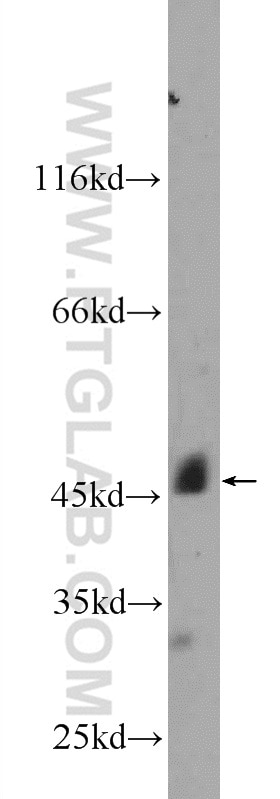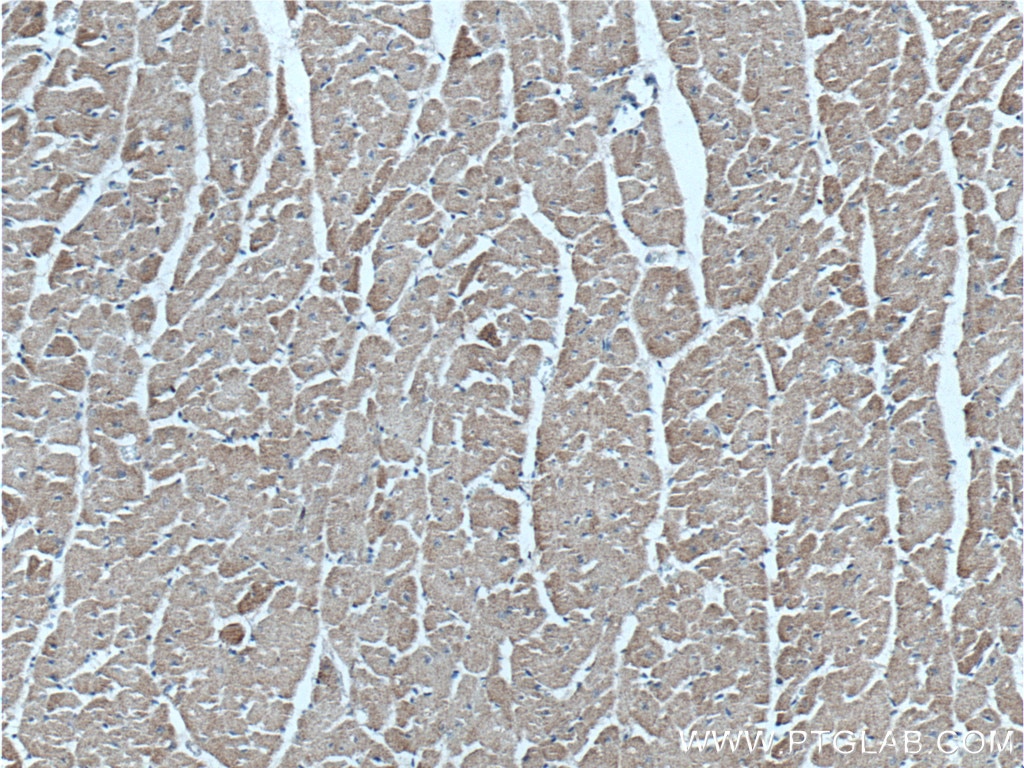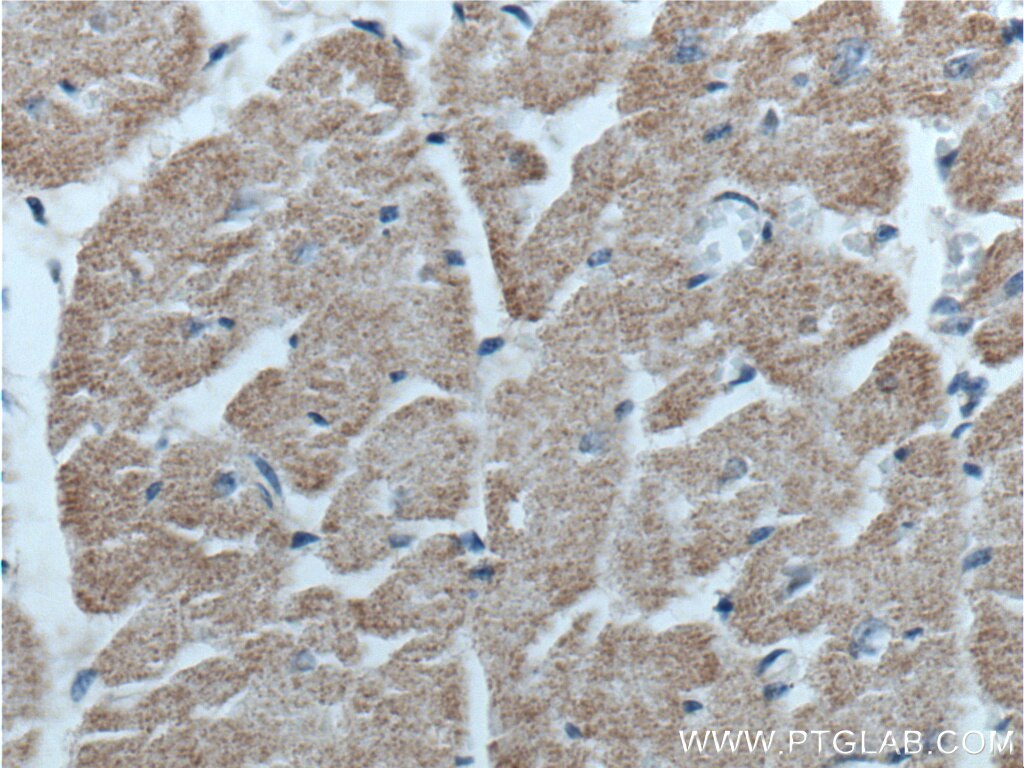Tested Applications
| Positive WB detected in | mouse heart tissue |
| Positive IHC detected in | human heart tissue Note: suggested antigen retrieval with TE buffer pH 9.0; (*) Alternatively, antigen retrieval may be performed with citrate buffer pH 6.0 |
Recommended dilution
| Application | Dilution |
|---|---|
| Western Blot (WB) | WB : 1:500-1:1000 |
| Immunohistochemistry (IHC) | IHC : 1:50-1:500 |
| It is recommended that this reagent should be titrated in each testing system to obtain optimal results. | |
| Sample-dependent, Check data in validation data gallery. | |
Product Information
25379-1-AP targets GFRA3 in WB, IHC, ELISA applications and shows reactivity with human, mouse samples.
| Tested Reactivity | human, mouse |
| Host / Isotype | Rabbit / IgG |
| Class | Polyclonal |
| Type | Antibody |
| Immunogen | GFRA3 fusion protein Ag13253 Predict reactive species |
| Full Name | GDNF family receptor alpha 3 |
| Calculated Molecular Weight | 45 kDa |
| Observed Molecular Weight | 45 kDa |
| GenBank Accession Number | BC037951 |
| Gene Symbol | GFRA3 |
| Gene ID (NCBI) | 2676 |
| RRID | AB_2880050 |
| Conjugate | Unconjugated |
| Form | Liquid |
| Purification Method | Antigen affinity purification |
| UNIPROT ID | O60609 |
| Storage Buffer | PBS with 0.02% sodium azide and 50% glycerol, pH 7.3. |
| Storage Conditions | Store at -20°C. Stable for one year after shipment. Aliquoting is unnecessary for -20oC storage. 20ul sizes contain 0.1% BSA. |
Background Information
GFRA3 is a receptor for the glial cell line-derived neurotrophic factor, ARTN (artemin). It mediates the artemin-induced autophosphorylation and activation of the RET receptor tyrosine kinase. GFRA3 has two isoforms with MW 45 kDa and 41 kDa. It can be cleaved to be a mature form with MW 41 kDa or 37 kDa.
Protocols
| Product Specific Protocols | |
|---|---|
| WB protocol for GFRA3 antibody 25379-1-AP | Download protocol |
| IHC protocol for GFRA3 antibody 25379-1-AP | Download protocol |
| Standard Protocols | |
|---|---|
| Click here to view our Standard Protocols |







